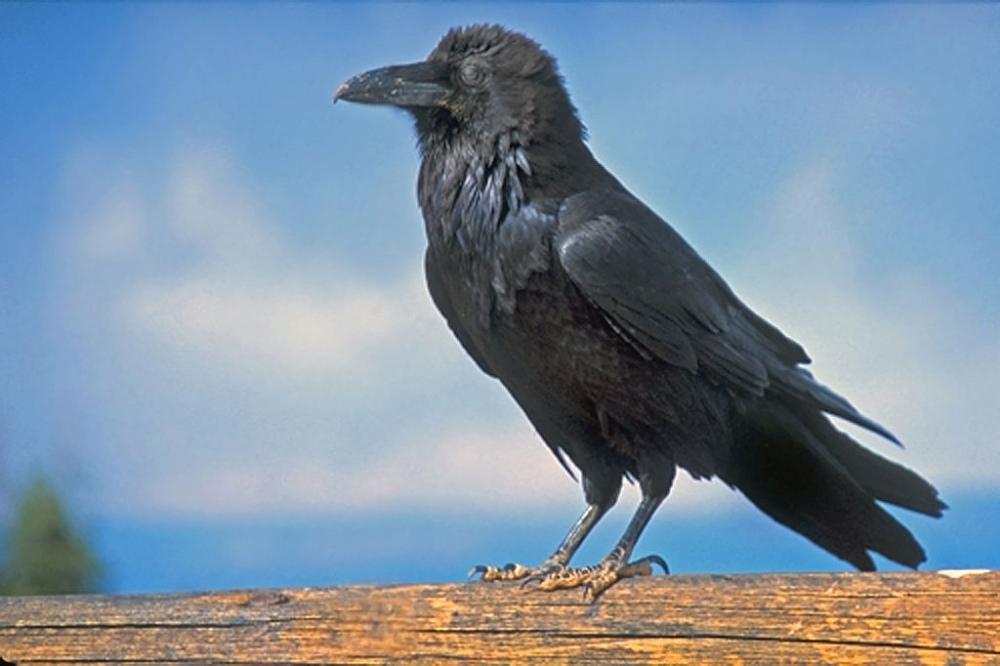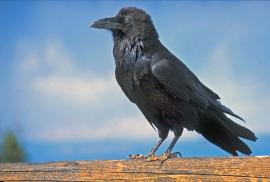Guide to Boreal Birds
Overview
In most of its range, the Common Raven is common only in wilderness areas; despite its large size and demonstrated intelligence, it is very sensitive to human persecution and was long ago driven out of settled areas by shooting and poisoning. Yet ravens are primarily scavengers, and around towns in the North they compete with gulls for garbage. They also raid seabird colonies, consuming many eggs and young. They regularly ride on rising air currents and frequently indulge in aerial displays, with mock fighting, tumbling, and other forms of acrobatics. The Common Raven is also the official bird of the Yukon Territory.
Description
21-27" (53-69 cm). Similar to the American Crow but larger, with heavier bill and wedge-shaped tail. At rest, throat appears shaggy because of long, lance-shaped feathers. Often soars like a hawk. See Chihuahuan Raven.
Voice
Deep, varied, guttural croaking; a hollow wonk-wonk.
Nesting
4-7 dull green eggs, spotted with brown, in a large mass of sticks containing a cup lined with fur, moss, and lichens, and placed on a cliff or in the top of a conifer.
Habitat
Coniferous forests and rocky coasts; in West also in deserts and arid mountains.
Range/Migration
Resident from Aleutians, northern Alaska and northern Canada south throughout western United States and to Minnesota, Great Lakes, and northern New England; in Appalachians to northwestern Georgia. Also in Eurasia and North Africa.



